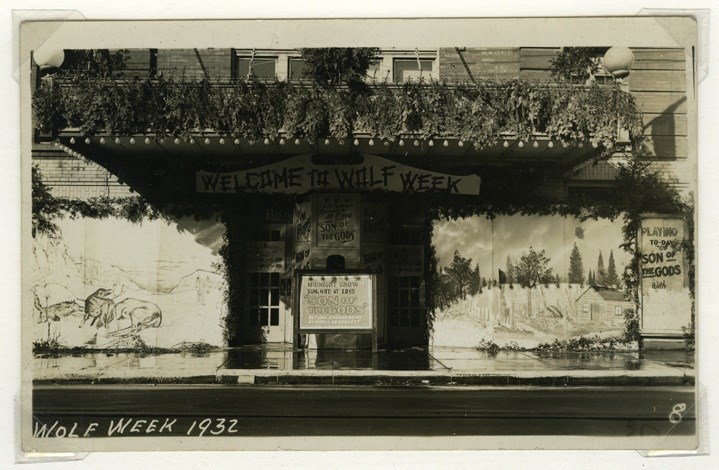From the archives of the Sault Ste. Marie Public Library:
*************************
Remember This? . . . Wolves Don’t Bite
James W. Curran, original owner of the Sault Star was a great admirer of the wolf. At this point in time wolves were feared and hunted as an enemy of humans. Curran on the other hand, went so far as to write a book entitled Wolves Don’t Bite in defense of these animals. In his book, Curran claims that the story of Little Red Riding Hood, “laid an unreasoning fear on countless millions of human beings...”
Curran’s book was dedicated to several individuals and groups, first and foremost though he dedicated the book to the Algoma wolf “in grateful recognition of his fine cooperation in dispelling a myth dear to mankind.” Curran always insisted that Algoma wolves were not the kind that attacked humans.
In the book’s introduction Arthur R. Kennedy, one-time editor of the Peterborough Examiner recounts that Curran became well known for his unique proposal in which he offered a reward for anyone who could prove that he had been “et” by a wolf. The following offer appeared in the Sault Star on February 14, 1925 and was actually reprinted in many Canadian and American newspapers:
“This is to inform the public that the Sault Daily Star will pay $100 to the first person who can establish to the satisfaction of the editor that any timber or brush wolf has attacked any person in Algoma, public opinion in the vicinity of the alleged attack to be a factor. We limit the contest to Algoma, because it would not be convenient for us to travel outside the confines of this district. If a hardy Algoma wolf won’t eat anybody, the softer species farther south probably won’t.”
Kennedy commented, “Just how a man who had been ‘et’ by a wolf could enter the newspaper office has always been a source of puzzlement, and it may be that the stipulation was framed in the first place so that James Curran could keep his $100.” Response to this offer resulted in about 80 to 90 claims but none were proven to be legitimate.
While researching his book, Curran contacted the United States Department of Agriculture, Bureau of Biological Survey. The response to his inquiry was answered by W.B. Bell, Acting Chief who wrote “the files of this Bureau contain no record of wolves killing people in North America, as all reports of such killings provided, upon investigation, to be unfounded.”
Curran travelled throughout the region giving talks on the ‘misunderstood wolf’ and trying to change people’s feelings about this animal. Ironically, he is known for wearing a full-length wolf fur coat!
In 1932, Curran suggested that plans be made to create a festival to be held July 25 – 30, 1932.
The goal of this festival was to highlight the wolf while bringing tourist money to the Sault and ultimately giving the local residents something to look forward to after having endured the worst year of the Great Depression in 1931. During Wolf Week, Curran erected an arch at Bell’s Point that was two cedar poles topped with a huge howling wolf. The banner on the arch read “Respectable Strangers Are Welcome In This Town.” It is estimated that 10,000 visitors came to enjoy the festivities of Wolf Week in 1932. Attractions included a pen in the centre of town containing a pack of wolves, performance of the Hiawatha play and a mammoth barbecue for the public.
More recently, in a 2006 Globe and Mail article, Ontario Ministry of Natural Resources scientist Brent Patterson said that “wolves, who generally travel in packs and who prey on moose and beavers in Ontario, rarely attack or even show themselves to humans. The same article also states “according to the ministry, there have been few instances in Canada where wolves have bitten people; no one has ever been killed by a wolf attack in North America.”
A 2011 CBC article entitled 5 Animals That Attack in the Canadian Wild, stated that “wolf experts say attacks on humans are rare and fatalities involving wild wolves are virtually unheard of.”
Curran concluded his book with the following: “It is hoped the trip to Algoma (in spirit) has done the reader some good. May he remember the wind in the trees, the silence of the woods, the roar of the rapids and the camaraderie of the camp that this book has tried to inadequately to convey. And so, good-bye! It was nice of you to call!”
*************************
Each week, the Sault Ste. Marie Public Library and its Archives provides SooToday readers with a glimpse of the city’s past.
Find out more of what the Public Library has to offer at www.ssmpl.ca and look for more Remember This? columns here
